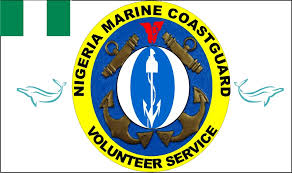The Nigerian Marine Coastguard Volunteer Services has stated that waterway wreckage poses several dangers, including pollution from leaking oil and hazardous materials, and navigational hazards for waterway users.
The Chief Commanding Officer of the NMCVS, Isaac Adamolekun, in a statement obtained by The PUNCH on Monday, added that wrecks also potentially impact marine life and human health, especially for marine tourists and water swimmers.
According to him, these risks are currently pronounced at Ebute-Ero in Lagos, waterways, where submerged wrecks are currently lying, especially during this rainy season, where high water levels will soon rise.
“Wreckage in waterways poses several dangers, including pollution from leaking oil and hazardous materials, navigational hazards for waterways users, and potential impacts on marine life and human health, especially for marine tourists and water swimmers.
These risks are currently pronounced in Ebute-Ero, Lagos, in waterways where submerged wrecks are currently lying, especially during this rainy season, where high water levels will soon rise,” he said.
Adamolekun emphasised that litter on the waterways poses numerous dangers, impacting wildlife, water quality, and even human health and navigational safety.
According to him, entangled wildlife can be injured or killed, and the accumulation of litter, wreckage, and debris can alter habitats, reduce oxygen levels, and allow the spread of pollutants and diseases.
Giving details of the dangers of wrecks on waterways, he explained that they can leak oil and other hazardous materials, contaminate the water, and harm marine life.
He stated that wrecks can also release chemicals and pollutants into the water, which can be taken up by organisms and transferred up the food chain, eventually impacting human health.
“Decomposing organic matter and chemicals from wreckage and trash can deplete oxygen levels in the water, harming aquatic life and creating dead zones, thereby also endangering navigation in our water.
Adamolekun highlighted that wrecks, especially when submerged, can be difficult to detect by boat operators, posing a significant danger during navigation.
“Collisions with wrecks can damage vessels and cause accidents, reducing recreational value. Litter and wreckage make waterways unsafe, unsightly, and unattractive, deterring people from using them for recreation and safe navigation, thereby impacting marine tourism safety development negatively,” he added.
He also mentioned that wrecks can disrupt natural habitats and damage marine ecosystems: “Chemical and physical pollution from wrecks can directly harm marine organisms and disrupt their life cycles.”
He pointed out that marine wreckage debris and litter can damage fishing equipment, interfere with navigation, and reduce the value of coastal safety and properties.
Adamolekun, however, admitted that removing and disposing of wrecks can be expensive, further burdening resources.














